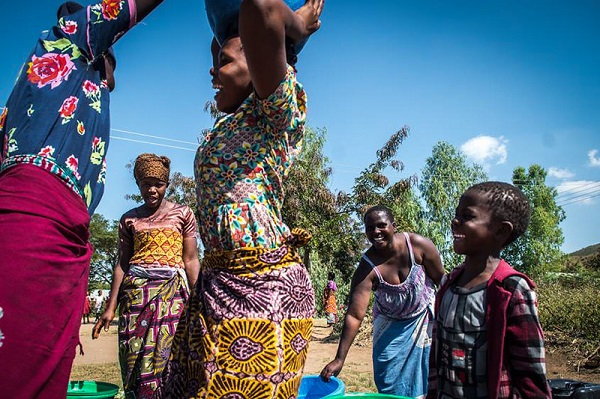Malawi’s Youth Perspective on COP26 and its Outcomes

Introduction
The Intergovernmental Panel on Climate Change (IPCC) Working Group I Sixth Assessment Report, released shortly before COP26, reminded us that the climate crisis is a “code red” for humanity. Immediate and urgent action is necessary to maintain global warming at 1.5 degree Celsius agreed at the international decision-making body Conference of Parties (COP) to the United Nations Framework Convention on Climate Change.
The 2020 COP26 only took place in Glasgow in early November 2022, delayed by the COVID 19 pandemic. Malawi, along with other Parties within the Least Developed Countries (LCDs) negotiation group came to the COP with a vision of putting the world on a pathway towards 1.5 degrees and called for a shared goal of 70% finance flows to support climate action to LDCs by 2030.
Women and youth representatives from Malawi attended COP26 to observe negotiations. This allowed representation of those who bear the brunt of the impacts of climate change. At COP26, youth representatives in Malawi wanted to see their government lobby for greater climate financing towards nature-based solutions and climate actions, and to have their voices heard in the decisions that will directly affect their future.
COP 26 saw some positive decisions made which benefit Malawi including increased adaptation finance, commitment to reversing deforestation and greater commitment to clean cooking energy. Despite this, Malawian youth representatives left Glasgow frustrated with failure of developed countries to immediately uphold the climate finance pledge of $100 billion per year by 2020 that was agreed at the Copenhagen COP.
This blog provides a summary of Malawian youth expectations and responses to COP26. This blog is reposted from the BRACC project and website to weADAPT
More Expected of Climate Finance
Despite developed countries’ pledges for increased adaptation finance, Malawian youth representatives felt there could be greater quantity and quality climate finance that is more accessible and available.
“Developed countries not committing seriously to climate finance has caused us to be disappointed in our leaders. We are very sad but we haven’t been defeated. We will still push, we will keep fighting,” said Dorothy Kazombo Mwale, a COP 26 attendee and a member of the National Youth Network on Climate Change– a youth network that promotes the active participation of youth voices in government decisions on climate change.
Kazombo Mwale explained that the climate finance shortfall will affect youth as they will not be able to implement adaptation projects that would help to combat the impact of climate change.
“The funds not being accessible or available is going to cause devastating effects because we are going to keep suffering from climate change, with more loss and damage. If the trend continues, the youth will suffer more from climate change in the future than we already are,” she added.
Brenda Mwale, a farmer and member of the Green Girls Platform, a youth empowerment organization, said the burden will remain particularly severe for women and girls.
“For countries like Malawi to be able to come up with mitigation and adaptation measures, we still need finance. The fact that developed countries are not willing to fulfil their pledges will have direct implications for the lives of women and girls in Malawi. With limited financing, these very vulnerable groups may continue to be marginalized and left out of activities that address the impacts of climate change,” she said.
Mwale also mentioned that limited climate finance will impede Malawi’s plans to implement just transitions from fossil fuels to green and clean energy, as outlined in the the updated Nationally Determined Contributions.
“Just transitions cuts across many areas beyond energy. For a just transition to occur, it means every person has to do their part. The youth have so many innovations for improving availability of and access to clean energy but scaling up requires finances. With the way things are right now, it will be difficult for Malawi to accelerate a just transition,” she added.
Despite some disappointment with around climate finance, Malawi’s youth delegates were happy that COP26 provided an opportunity for them to participate and have their voices heard to an extent.
“We were able to speak to decision makers, we were able to have a conversation with them, and even though our demands were not fully met, having a space to speak was a nice thing,” said Dorothy Kazombo Mwale.
(0) Comments
There is no content